Do You Have Dry Skin Around The Mouth? Here Are Tips To Prevent
Learn the easiest ways to get smooth and flawless skin around your pout.

Image: Shutterstock
Did you know that dry skin around the mouth can be caused by a number of factors? Yes. A variety of conditions can induce dryness around the mouth, including an allergic reaction, dehydration, and an underlying ailment.

This dryness can appear along with symptoms such as itching, redness, and lesions. Fortunately, regular skin care, home remedies, and other alternative treatments can quickly reduce it. Keep reading to learn how to treat the dryness around your mouth so you can feel and look your best.
In This Article
Causes Of Dryness Around The Mouth
Various factors can cause dry skin around mouth. These include:
1. Perioral Dermatitis

Perioral dermatitis causes red, itchy rashes around the mouth along with dryness (1). These rashes appear bumpy and scaly. You may experience an itching or burning sensation around the mouth. It is often caused by excessive use of topical steroids, heavy creams, and moisturizers. This condition is predominant in women compared to men and children. It can turn into a recurring issue if not treated properly.
A recent survey was conducted with 15,177 participants to understand the relevance of perioral dermatitis with facial mask usage. The study found that 491 patients with perioral dermatitis were identified. The percentage increased from 3.65% to 4.69% due to increased mask usage from 2019 to 2025.
 Trivia
Trivia2. Eczema
Eczema is an autoimmune condition that may cause dry skin. It is also a part of atopic dermatitisi A skin condition characterized by itchy inflammation that generally develops in childhood but can occur in adulthood as well. . You may experience severe itching (especially at night), rough and dry patches, and small red fluid-filled bumps that crust when scratched (2).
3. Contact Dermatitis
You are likely to experience skin irritation, itching, and dryness if you come in contact with allergens. The allergic reactions can result from exposure to harsh chemicals in soaps, skin care and makeup products, and even certain toothpastes, ultimately causing the skin to dry. It can cause inflammation and redness around your mouth (3).
4. Changes In Environment And Hydration
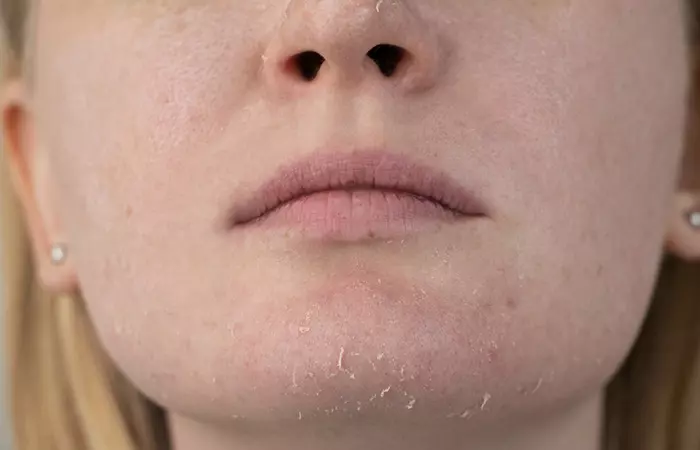
Exposure to dry, windy, or cold climates can strip the natural moisture from your face, leaving facial skin dry and irritated. This needs to be compensated for with emollients/moisturizers, depending on the climate. In addition, lack of water or other fluids in your body may also cause dehydration, which may reflect on your skin.
5. Saliva Around The Mouth
Saliva can also make the skin dry. If you have the habit of licking your lips or drooling in your sleep, it can cause dryness around the mouth and chapped lips. This is very common in kids. Keep yourself hydrated and apply a non-irritating lip balm several times a day to prevent this.
6. Medications
Certain medications, such as anti-acne creams and lotions, can dry out the skin on your face, especially if you have sensitive skin. Prescription medicines (topical and oral) like tetracyclines and tretinoin are common drugs causing dryness around the mouth (4).
 Quick Tip
Quick TipYour doctor will perform a physical examination and ask for your medical history to diagnose the exact cause of dryness around your mouth. If an underlying skin condition causes it, they will prescribe medicines. If it is nothing major and serious, you just need to care for your skin to reduce dryness around the mouth. In the next section, find out the treatment options.
Key Takeaways
- Dry skin around the mouth can be caused by dermatitis, eczema, medications, and other issues.
- Use a mild cleanser, apply moisturizer daily, use a humidifier, among other things, to improve skin condition.
- Changing your skin care products might also aid in treating dry skin.
- Consult a physician if the problem persists as it could result from an underlying condition.
Treatment Options For Dryness Around The Mouth
Your skin specialist can help you with the available treatment options based on the cause:
1. Perioral Dermatitis
If topical steroids trigger this condition, ask your doctor for alternate medication. The doctor may prescribe emollients, humectants, or antibiotics to help with your flare-ups.
2. Eczema
You can manage the eczema symptoms by using OTC moisturizers, topical anti-inflammatory medications. In severe cases, you may require oral steroids to control the flare-ups.
You may need several weeks before the dryness and rashes around the mouth subside. You also need to take extra care of your skin to avoid dryness. Here are a few tips to help you do that.
Tips To Prevent Dryness Around The Mouth
Changing your habits and taking better care of your skin can limit your skin troubles.
1. Use A Mild Cleanser

Wash your skin with a mild cleanser. Using harsh cleansing agents (like SLSi Short for sodium lauryl sulphate, a commonly used ingredient in cosmetic cleansing products due to its foaming and oil-suspending properties. and SLESi Short for sodium lauryl ether sulphate, a strong agent with cleansing, emulsifying, and foaming properties. ) or soap can dry out the delicate facial skin. Pick a cleanser that does not contains artificial fragrances, colors, alcohol, and artificial preservatives. These irritate the skin and cause itching and flaking. Also, avoid washing your face with very hot or very cold water. Always use room temperature water to clean your face.
2. Exfoliating Your Skin
Your skin has a natural cycle where new cells replace the older cells. The skin cell turnover takes about 28 days to complete. However, if the dead skin cells remain on the surface, they may clog your pores and cause patchy, dry skin on the face. Practicing an exfoliation routine once a week can help clear dead skin cells, improve skin texture, and help maintain skin health. For best results, use an exfoliant made for your skin type. Physical exfoliants like gentle scrubs are suitable for most skin types, while chemical exfoliants with ingredients like AHAs or BHAs are gentler and ideal for sensitive or acne-prone skin.
Note that over-exfoliating your skin can be counter-productive; it can increase the dryness by stripping off the natural oils on the skin. Always follow it up with a hydrating moisturizer to lock in moisture and maintain a balanced skin barrier.
3. Daily Moisturizing

Your skin needs to stay hydrated and maintain an optimal moisture level. Applying moisturizer can prevent the skin cells from drying out and maintain a soft and plump look.
Ensure you use a hypoallergenic moisturizer – free of artificial fragrances and colors – to prevent irritation. Also, keep in mind that different skin types have different requirements. So, pick a moisturizer as per your skin type.
Petrolatum, dioxane, and alcohol in the moisturizers can sometimes worsen the flaky skin around your mouth. Hence, use them with caution.
If you want to take the natural route, try home remedies for dry skin on the face. You can use pure aloe vera gel, coconut oil, and shea butter to replenish your skin’s moisture (5). Experiment with the quantities to find the right amount for your skin when moisturizing with oil, as too much of it can also prove damaging for your skin.
3. Use A Humidifier At Home
Exposure to dry air for a prolonged period can reduce the moisture levels in your skin. If you stay in an arid area or use air conditioning, install a humidifier at home. It helps maintain humidity in the air and prevents skin dryness.
4. Improve Your Lifestyle Habits

Skin dryness can be a result of unhealthy habits. Drink plenty of liquids throughout the day to prevent dehydration. Limit your alcohol intake and avoid smoking, as they can cause the skin to dry up. Use fluoride-free toothpaste to avoid irritating the skin around the mouth. Additionally, you should learn to manage stress through calming practices, like yoga or meditation, and make good-quality sleep a top priority.
Also, if you are a person who loves to stand under a shower or soak in the bathtub for a long time, it can be harmful to you. Prolonged exposure (over 15 minutes) to water can strip the moisture from your skin, resulting in dryness. Limit your bathing time to 5-10 minutes to maintain healthy skin.
You can try these tips if your condition is not severe. Changing your skin care products can also help you tackle dryness issues. Additionally, certain foods also help alleviate dry skin around the mouth. Learn more about them in the next section.
Foods For Dry Skin Around The Mouth
1. Avocado
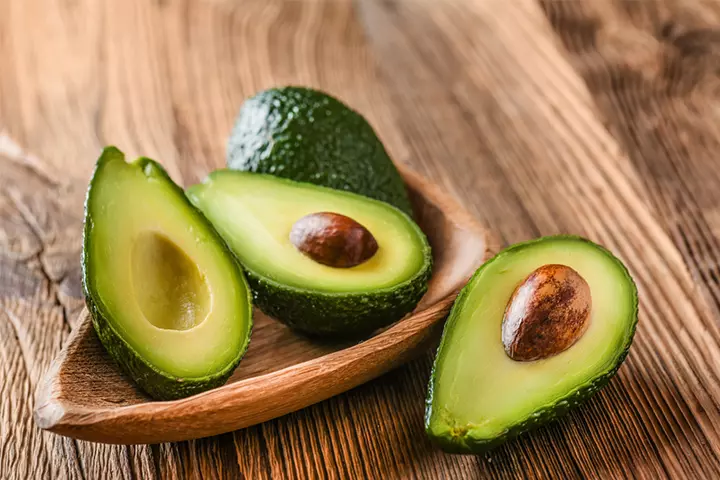
Avocado has natural emollient properties and is rich in vitamins A, D, and E that may hydrate dry, flaky skin (6). It also contains biotin that may soothe irritated skin and support skin hydration (7), (8).
2. Chia Seeds
They are rich in fiber and omega-3 fatty acids that support hydration and decrease transdermal water loss in the skin. This way, they help keep the skin supple and soft (9).
3. Almonds
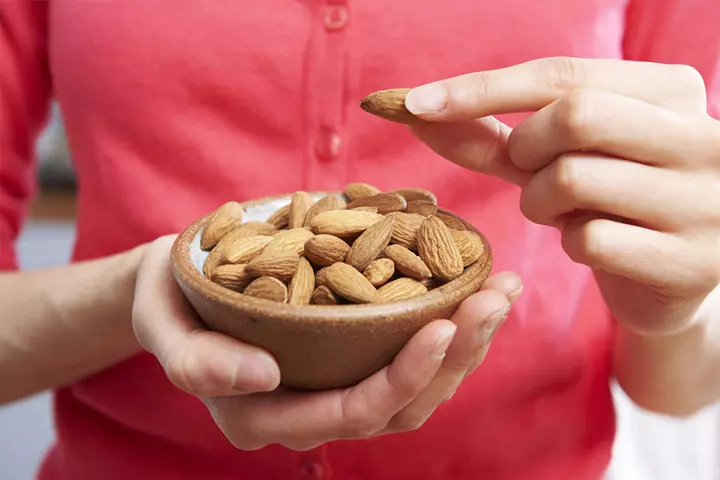
Almonds also exhibit emollient properties and may help moisturize dry skin. The oil extracted from almonds may potentially help combat skin conditions like eczema and psoriasis (10). However, more research is needed to further understand this benefit.
Infographic: Dryness Around The Mouth: Causes And Prevention Tips
Dryness around the mouth occurs when the skin in this area lacks proper moisture, leading to tightness, flakiness, and discomfort. Maintaining a consistent and gentle cleansing routine and protecting the skin from harsh weather conditions by wearing a scarf during cold or windy days may help prevent dryness and improve overall skin health. Check out the infographic below for the top three causes of this condition and some preventive tips to manage dryness around the mouth.
Some thing wrong with infographic shortcode. please verify shortcode syntaxMultiple factors such as eczema, dehydration, medications, and changes in the environment can cause you to develop dry skin around the mouth. If the cause in an underlying medical condition, your doctor may prescribe antibiotics, anti-inflammatory medications, or moisturizers to manage the flare-ups. The good news is you can opt for natural remedies to avoid your skin from getting dry. Following a proper skin-care routine, leading a healthy lifestyle, and investing in a proper humidifier will go a long way in keeping your skin hydrated and healthy.
Frequently Asked Questions
What does your face look like in perioral dermatitis?
Perioral dermatitis appears in circles around the mouth. It can cause red, dry skin around the mouth with inflamed bumps and may spread to the areas around the nose and upper lips.
What should I do if my dry skin around the mouth does not improve with home or over-the-counter remedies?
If the condition continues despite trying home remedies and making lifestyle changes, do consult a physician for proper care and guidance.
Is there any way to reduce the appearance of wrinkles caused by dry skin around the mouth?
Yes, by applying natural oils like coconut and almond oil or following the advised skincare routine to prevent dryness, you can get rid of the wrinkles around your mouth. Coconut oil possesses emollient properties that can soothe and moisturize the skin (11).
Illustration: Do You Have Dry Skin Around The Mouth? Here Are Tips To Prevent

Image: Stable Diffusion/StyleCraze Design Team
Delve into the mystery of dry skin around the mouth with this informative video. Explore potential triggers and learn practical tips to regain a soft and supple complexion.
References
Articles on StyleCraze are backed by verified information from peer-reviewed and academic research papers, reputed organizations, research institutions, and medical associations to ensure accuracy and relevance. Read our editorial policy to learn more.
- COMMON ALLERGIES AND ALLERGENS IN ORAL AND PERIORAL DISEASES
https://www.ncbi.nlm.nih.gov/pmc/articles/PMC7808231/ - Eczema
https://www.ncbi.nlm.nih.gov/books/NBK538209/ - Contact Dermatitis
https://www.ncbi.nlm.nih.gov/books/NBK459230/ - Isotretinoin
https://www.ncbi.nlm.nih.gov/books/NBK525949/ - Moisturizers: The Slippery Road
https://www.ncbi.nlm.nih.gov/pmc/articles/PMC4885180/ - Wound healing activity of Persea americana (avocado) fruit
https://pubmed.ncbi.nlm.nih.gov/18376654/ - Evaluation of biophysical skin parameters and hair changes in patients with acne vulgaris treated with isotretinoin, and the effect of biotin use on these parameters
https://pubmed.ncbi.nlm.nih.gov/33682085/ - Determination of the biotin content of select foods using accurate and sensitive HPLC/avidin binding
https://www.ncbi.nlm.nih.gov/pmc/articles/PMC1450323/ - HYVIA™: A novel, topical chia seed extract that improves skin hydration
https://pubmed.ncbi.nlm.nih.gov/32378329/ - The uses and properties of almond oil
https://pubmed.ncbi.nlm.nih.gov/20129403/ - In vitro anti-inflammatory and skin protective properties of Virgin coconut oil
https://www.ncbi.nlm.nih.gov/pmc/articles/PMC6335493/
Read full bio of Dr. Sravya Tipirneni
Read full bio of Ramona Sinha
Read full bio of Eshna Das
Read full bio of Shiboli Chakraborti





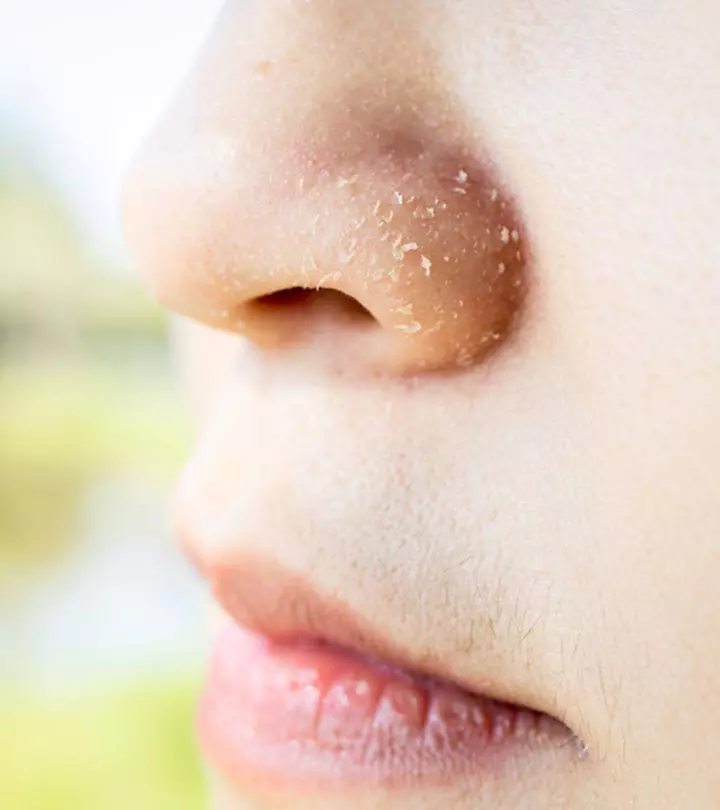
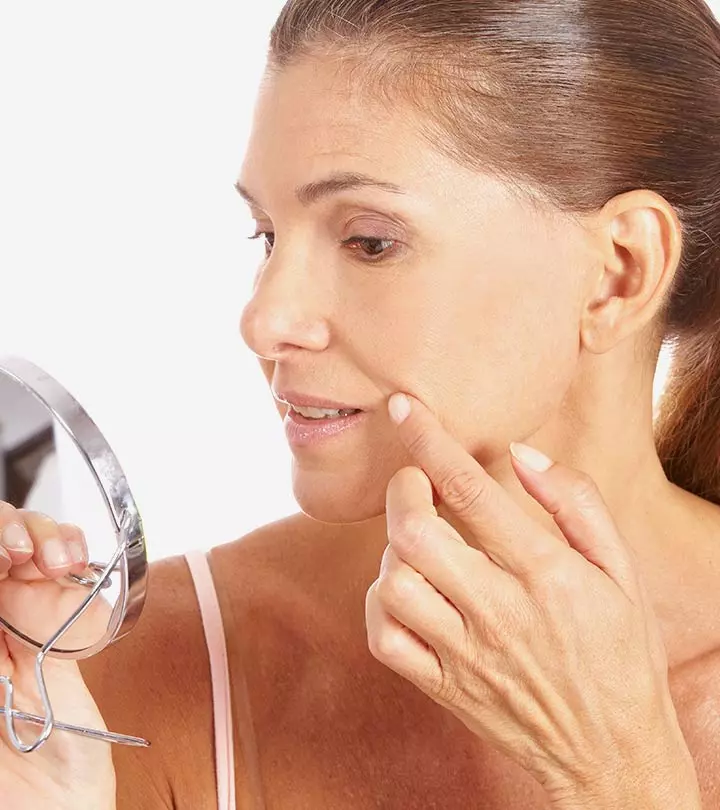

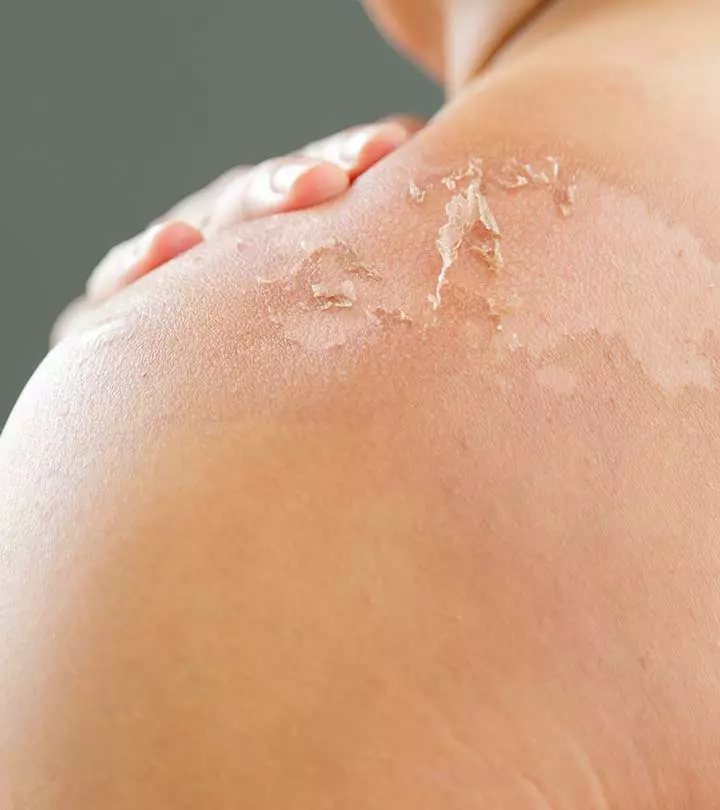





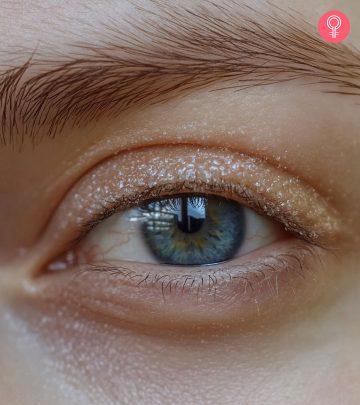




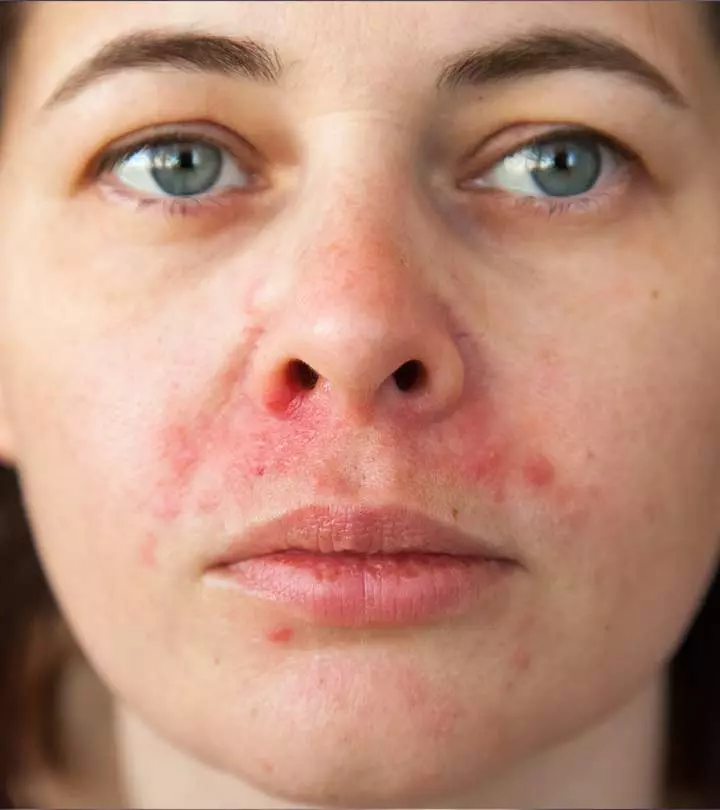


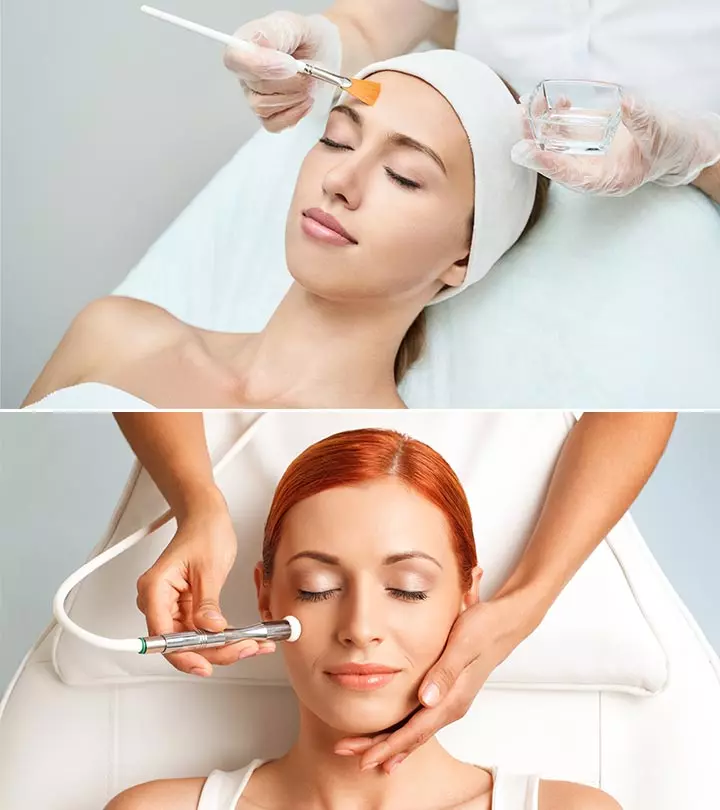

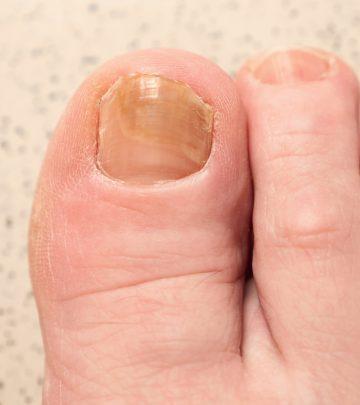

Community Experiences
Join the conversation and become a part of our empowering community! Share your stories, experiences, and insights to connect with other beauty, lifestyle, and health enthusiasts.